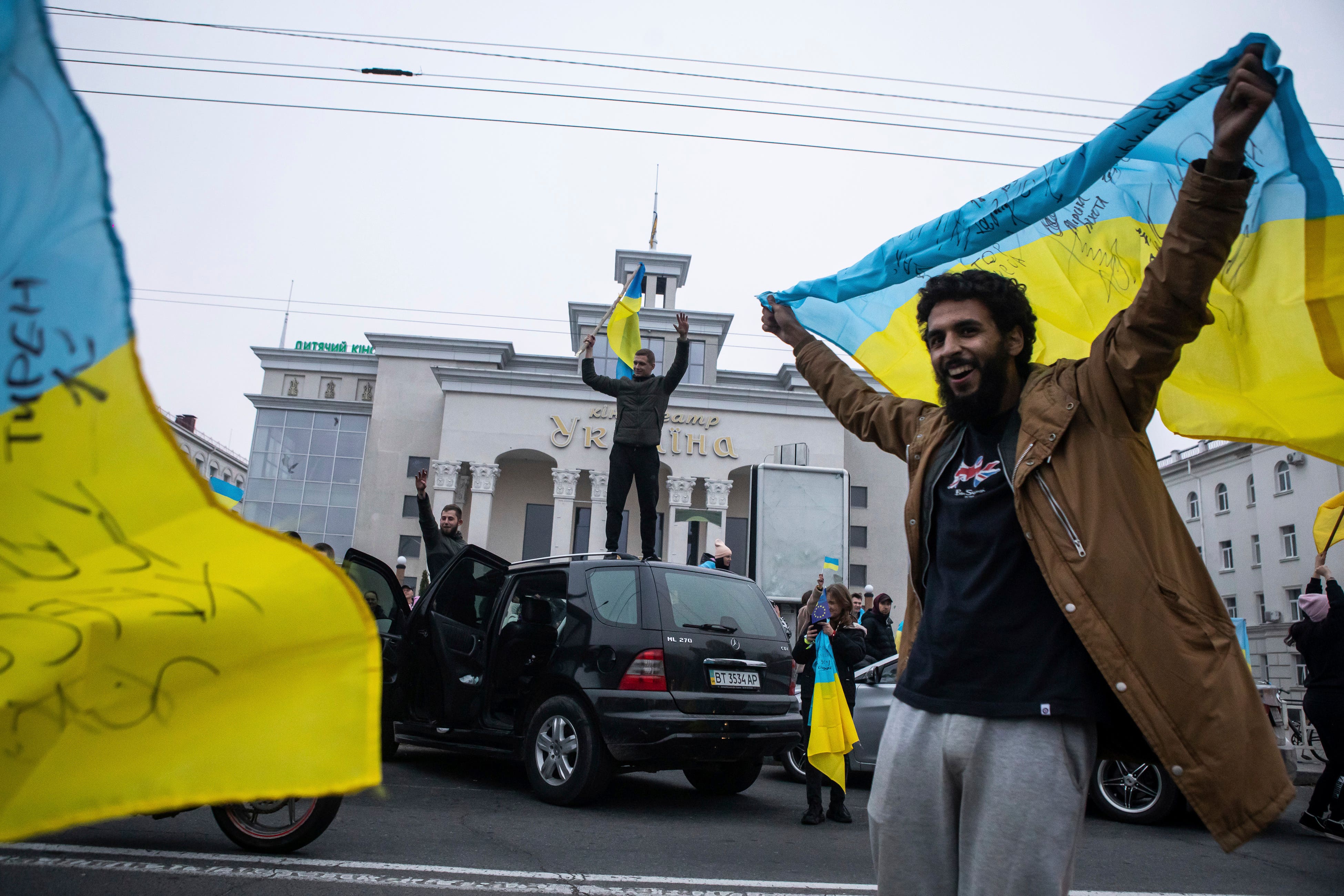Wallace: Russia could send for further ‘cannon fodder’ after Kherson loss
Defence Secretary urges ‘caution’ when considering the jubilant scenes on the streets of the recaptured Ukrainian city.

Your support helps us to tell the story
From reproductive rights to climate change to Big Tech, The Independent is on the ground when the story is developing. Whether it's investigating the financials of Elon Musk's pro-Trump PAC or producing our latest documentary, 'The A Word', which shines a light on the American women fighting for reproductive rights, we know how important it is to parse out the facts from the messaging.
At such a critical moment in US history, we need reporters on the ground. Your donation allows us to keep sending journalists to speak to both sides of the story.
The Independent is trusted by Americans across the entire political spectrum. And unlike many other quality news outlets, we choose not to lock Americans out of our reporting and analysis with paywalls. We believe quality journalism should be available to everyone, paid for by those who can afford it.
Your support makes all the difference.Defence Secretary Ben Wallace has said Russia will be worried and disappointed by the loss of a strategically key city in the south of Ukraine, and warned it may mean “more cannon fodder” is on the way.
He urged “caution” when considering the jubilant scenes on the streets of Kherson, as Ukrainians celebrated Moscow’s withdrawal from the only regional capital captured by Vladimir Putin’s army during the invasion to date.
“History will remind you that Russia can be brutal to their own,” he said.
“If they need more cannon fodder, that is what they’ll be doing.”
It comes as British defence experts warned Moscow is planning to reprise a Soviet-era scheme whereby students were given “mandatory military training”, including experience handling Kalashnikov rifles.
“We see that today they announced children in schools are going to be trained, and that’s the type of regime we’re up against,” Mr Wallace said.
Speaking to broadcasters in Westminster, he said Russia’s retreat from Kherson “shows remarkable capability by Ukraine”, noting: “It basically begs the question to the Russian population, effectively: What was it all for?”
He added it is up to the Ukrainians to decide “when and how” they negotiate with their neighbour, should they choose to do so.
Asked if now is the right time for talks, given Ukraine’s strong position, Mr Wallace said: “First of all, I don’t think we should be grateful when the thief gives back stolen goods – and that’s effectively what Russia has done.
“Now it’s going to sort of go around the world trying to say everyone should be grateful for that. No, they shouldn’t, Russia shouldn’t have done it in the first place in February.
“I think it’s up to the Ukrainians to decide when and how they want to negotiate. Ultimately, Ukraine will want to do that from a position of strength and momentum is with Ukraine. I can’t see why Ukraine would stop that.”
Moscow’s withdrawal from the city just six weeks after illegally annexing the Kherson region marks a major setback for the Kremlin.
The exit was formally announced on November 9, but British defence intelligence analysts believe it is likely it started as early as October 22.
Chief of the Defence Staff, Admiral Sir Tony Radakin, said the Russian operation is failing “dramatically”.
He told the BBC’s Sunday with Laura Kuenssberg: “Russia wanted to weaken Nato and Nato’s even stronger. Then if you come down to the tactical fight, we’re seeing continued success by Ukraine.”
The UK’s job is to support Ukraine politically, diplomatically and militarily, he added.